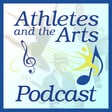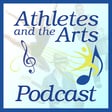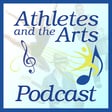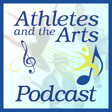
Letting The Music Breathe: How Science Got Music Back in School
When COVID-19 caused schools to keep students of all grades at home, those arguably most disadvantaged by this were musicians. Many barriers stood in the way of getting students back in the music room: aerosolization from instruments and voice, close proximity between students, secretions from brass instruments, and antiquated ventilation systems in thousands of school buildings.
Early projections indicated that musicians would not get back in the room for 2 YEARS!
Well, that didn't happen, and our guests are a huge reason why.
Steven and Yasi talk to Dr. Mark Spede, Director of Bands and Conductor of the Symphonic Band at Clemson University, and Dr. James Weaver, Director of Performing Arts and Sports for the National Federation of State High School Associations. These two gentlemen collaborated on expedient and collaborative research that helped crack the code on how to play music in a post-pandemic school environment.
To read more on their groundbreaking research, go to https://www.nfhs.org/articles/unprecedented-international-coalition-led-by-performing-arts-organizations-to-commission-covid-19-study/
For more on National Federation of State High Schools' online education platform, go to https://nfhslearn.com/
For more resources, go to https://athletesandthearts.com/
Bios:
Dr. James Weaver is the Director of Performing Arts and Sports for the National Federation of State High School Associations. He has been a teacher and administrator at the district, state, and national level. As the Director of Performing Arts and Sports, Dr. Weaver oversees student participation, professional development, and awareness of performing arts activities throughout the nation’s 19,500+ high schools. Dr. Weaver has been a part of several national projects for performing arts educators including serving as the co-chair of the International Performing Arts Aerosol Study, creating copyright compliance resources, and developing national trainings for performing arts adjudicators. He most recently became the President of the National Music Council (NMC) in the Fall of 2021. Dr. Weaver specializes in educational administration and leadership focusing on professional development and teacher job satisfaction and retention. Dr. Weaver has degrees from Concordia College - Moorhead, Northern State University, and the University of South Dakota.
Dr. Mark J. Spede is Professor of Music, Director of Bands, Director of Tiger Band, and Conductor of the Symphonic Band at Clemson University. He is the recipient of the Clemson University 2009 Dean’s Award for Excellence in Teaching (College of Architecture, Arts, and Humanities), and three Clemson University Board of Trustees Awards for Faculty Excellence (2008, 2009, and 2012). He has served the College Band Directors National Association (CBDNA) in a number of capacities; he is currently national president. Dr. Spede previously served on the faculties at the University of Texas and the University of Florida and has degrees from the University of Michigan, Ball State University, and the University of Texas.



